How to Build Confidence in Children
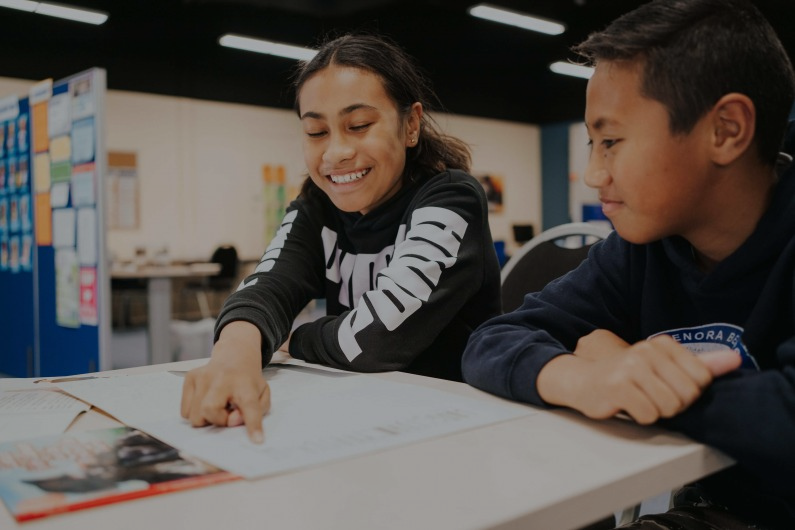
Confidence plays a crucial role in a child's learning and development journey. When children possess self-assurance, they are more likely to explore new opportunities, take pride in their achievements, and persevere in the face of challenges.
As parents and educators, we bear the responsibility of fostering confidence in children and nurturing their self-esteem. In this blog, we will explore effective strategies to help children build confidence and self-esteem to become confident and resilient learners.
Is your child struggling to keep up with schoolwork? Are they falling behind? Are they bored in class? Or are you looking for extension work for your child? Check out our eBook to learn more about how we help your child improve academically and build confidence through our in-centre after-school tuition.
Embrace Imperfection and Learn from Mistakes
One effective way to build confidence in children is to model confidence yourself by embracing imperfection and teaching them to learn from their mistakes. Failure and setbacks are inevitable aspects of the learning process, and children need to understand that making mistakes is a normal part of growth. As parents, we often feel confident and have the instinct to shield our children from failure, but it is through trial and error that they truly learn and develop resilience.
By allowing children to fail and make mistakes and teaching them the value of learning from those experiences, we help them become confident and resilient learners who are unafraid of failure and can bounce back from setbacks.
Celebrate Effort and Success to Create Confident Children
Acknowledging and celebrating a child's effort and success is a powerful way to boost their self-confidence and demonstrate that their hard work is recognised and appreciated. It is important to go beyond simply praising the result and instead focus on the process and effort they put into achieving their goals. By celebrating their accomplishments, we instil confidence, high self-esteem, and motivation in them to pursue their goals with unwavering determination.
It is equally important to celebrate personal growth by observing development and progress, regardless of the outcome. By valuing the journey and effort, we teach children, and adults of any age that success in life is not solely defined by the result but also by the progress they make along the way.
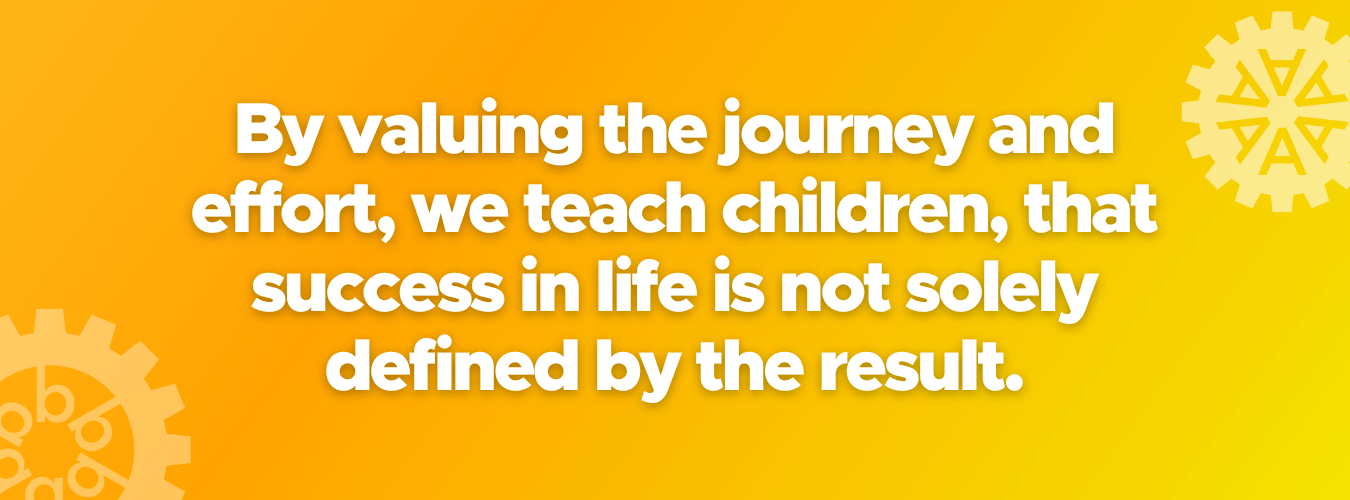
Treat Mistakes as Opportunities for Growth and Learning
Mistakes and failures are often viewed as negative experiences, but they can be valuable opportunities for growth and learning. It is essential to shift our perspective and teach children to view mistakes as building blocks for success.
Encouraging children to see mistakes as learning curves help them develop resilience, problem-solving skills, and the ability to overcome disappointments. By embracing mistakes as part of the learning process, we cultivate confidence and resilience in children, allowing them to approach new challenges with a positive mindset.
Provide Positive Affirmation, Encouragement, and Support
Positive affirmation, encouragement, and support are essential for building confidence in children. Taking notice of your child's strengths, interests, and accomplishments and expressing your pride and support through positive praise and affirmations can have a profound impact on their self-esteem.
It is important for confident kids to feel proud to focus on their strengths and highlight their unique qualities, as this fosters a sense of self-worth and confidence, and kids develop more confidence in their abilities too. By providing a supportive and nurturing environment, we help children develop a positive self-image, instilling in them the belief that they can achieve their goals.
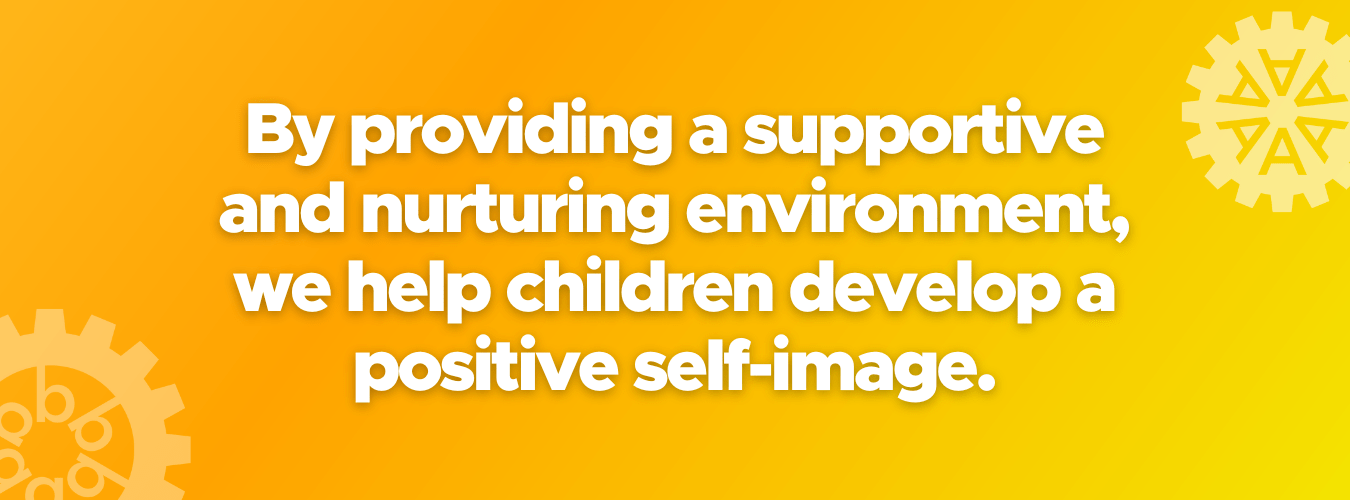
Foster a Growth Mindset and Resilience
Teaching children to adopt a growth mindset is instrumental in building their confidence and resilience. A growth mindset emphasises that abilities and intelligence can be developed through effort, practice, and learning from mistakes.
Encouraging children to view challenges as opportunities for growth and embrace the learning process helps them develop resilience, problem-solving skills, and the belief that they can overcome obstacles. By emphasising effort and perseverance over solely focusing on outcomes, we equip children with the mindset and tools necessary to navigate challenges and continuously improve.
Encourage Self-Reflection, Goal-Setting, and Personal Development
Promoting self-reflection, goal-setting, and personal development contributes significantly to building children's confidence. Encourage your child to take the time to reflect on their past accomplishments and identify areas where they excelled. This self-reflection helps them recognise their strengths, and progress, and boost their confidence.
Additionally, guiding your child in setting realistic goals that they can work towards fosters a sense of purpose and a feeling of positive accomplishment. When they achieve these goals and feel good about them, it reinforces their belief in their capabilities, fostering a sense of confidence and motivating them to set new goals.
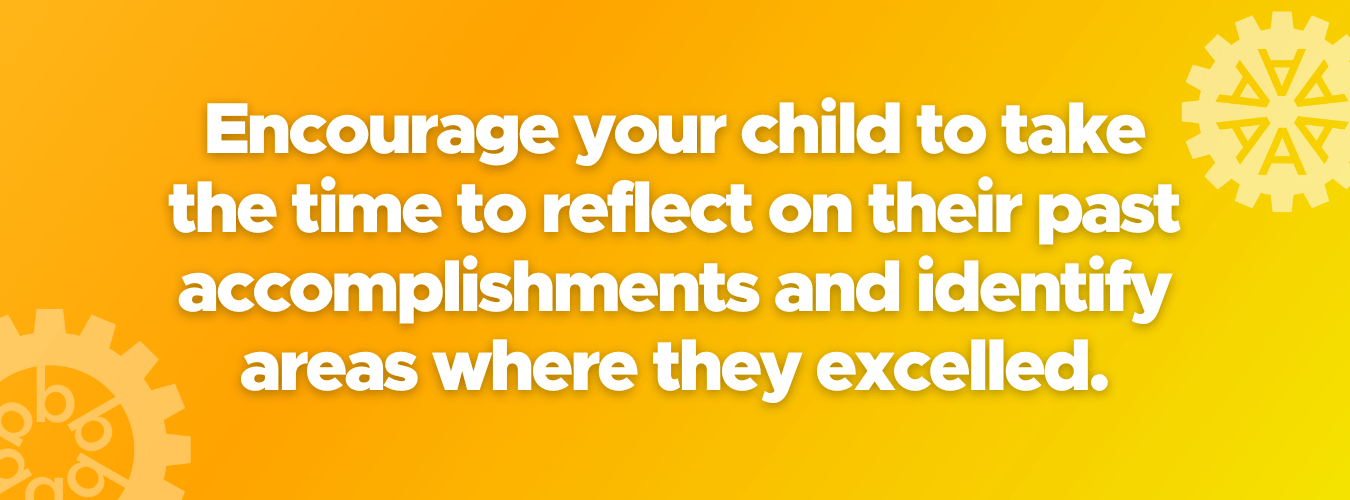
Provide Opportunities for Leadership, Responsibility, and Decision-Making
Granting children opportunities to take on leadership roles, responsibilities, and decision-making positions is a powerful way to build their confidence. Whether it involves leading a group project, organising a family event, or taking charge of a household chore, these experiences help children develop crucial skills such as decision-making, problem-solving, and effective communication. Taking ownership of tasks and witnessing the positive outcomes of their efforts enhances their confidence in their capabilities and motivates them to take on new tasks and challenges.
Boost their Self-Esteem
Self-esteem is a crucial aspect of an individual's overall well-being and personal development. It encompasses how a person perceives and values themselves, their beliefs about their abilities, and their overall sense of self-worth. Having healthy self-esteem is essential for maintaining positive mental health and navigating through life's challenges with resilience.
When individuals have a positive self-image and belief in their capabilities, they are more likely to take on new opportunities, set and achieve goals, and maintain healthy relationships. Building and nurturing self-esteem involves acknowledging one's strengths, embracing imperfections, setting realistic expectations, and practising self-compassion. By cultivating self-esteem, individuals can develop a strong sense of self and confidently pursue their passions, dreams, and aspirations.

Promote a Supportive and Inclusive Environment
Creating a supportive and inclusive environment is vital for building confidence in children. Foster a culture of respect, kindness, and empathy in your home or classroom. Encourage children to celebrate each other's successes, offer support during setbacks, and value teamwork and cooperation.
By promoting inclusivity in the school itself, you ensure that all children feel valued, accepted, and supported by the school itself. Provide opportunities for collaborative activities where children and adults can learn from and support each other, creating a positive and inclusive school environment that fosters confidence and self-esteem.
Seek Mentorship and Positive Role Models
Not all children naturally possess confidence, which is why seeking external support through Mentorship from adults and positive role models can be beneficial. Mentors, adults, and role models provide valuable guidance, encouragement, and understanding to children, especially those who may lack confidence or tend to be shy and reserved. Mentorship programmes offer age-appropriate support and aim to boost children's confidence and self-esteem through personalised guidance and inspiration from significant adults.
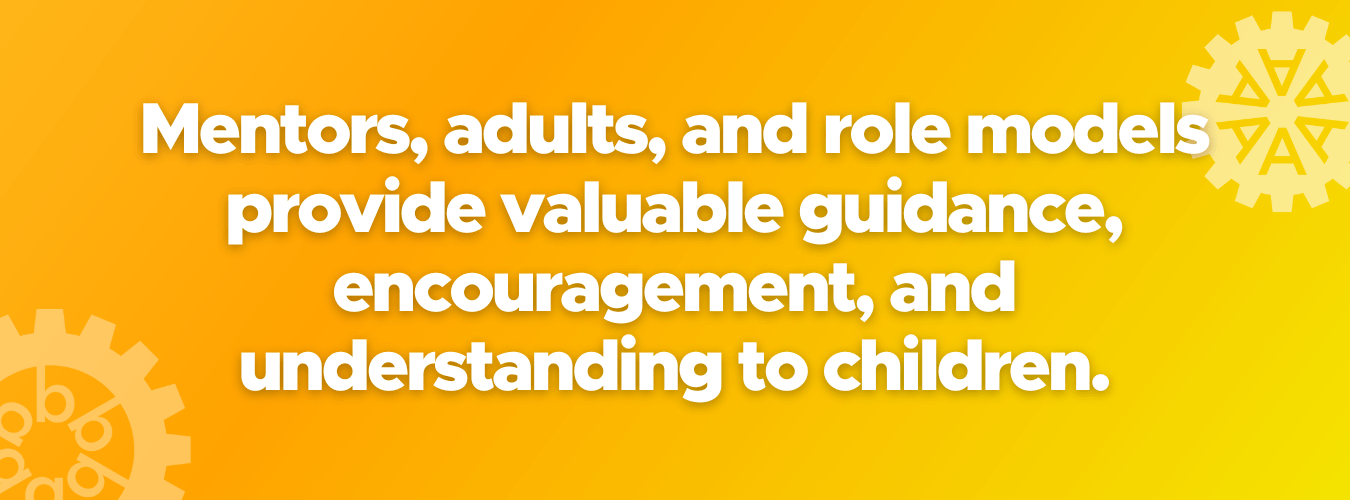
Encourage Active Problem-Solving and Decision-Making
Providing children with opportunities to actively solve problems and make decisions can both boost their confidence and greatly enhance it. Encourage them to think critically, analyse situations, and come up with solutions.
By involving them in decision-making processes and making age-appropriate choices such as household chores, choosing activities, or making choices within age-appropriate boundaries, you empower them to trust their judgement and build confidence in their ability to make sound decisions.
Cultivate a Growth Mindset through Effort and Learning
Teach children the value of effort, perseverance, and continuous learning. Help them understand that their abilities and intelligence can be developed through hard work and practice. Encourage them to embrace challenges, view setbacks as opportunities to learn and grow, and celebrate their progress. By fostering a growth mindset, you empower children to do new things, see failures as temporary setbacks, and build confidence in their capacity to improve and succeed.
Promote Positive Peer Interactions and Collaboration
Encourage children to engage in positive peer interactions and collaborative activities. Create an environment where they can work together, share ideas, and support one another. Collaboration allows children to build social skills, develop effective communication, and learn from their peers. By fostering positive relationships with peers, children gain confidence in their social abilities and feel more comfortable expressing themselves and sharing their ideas and opinions.
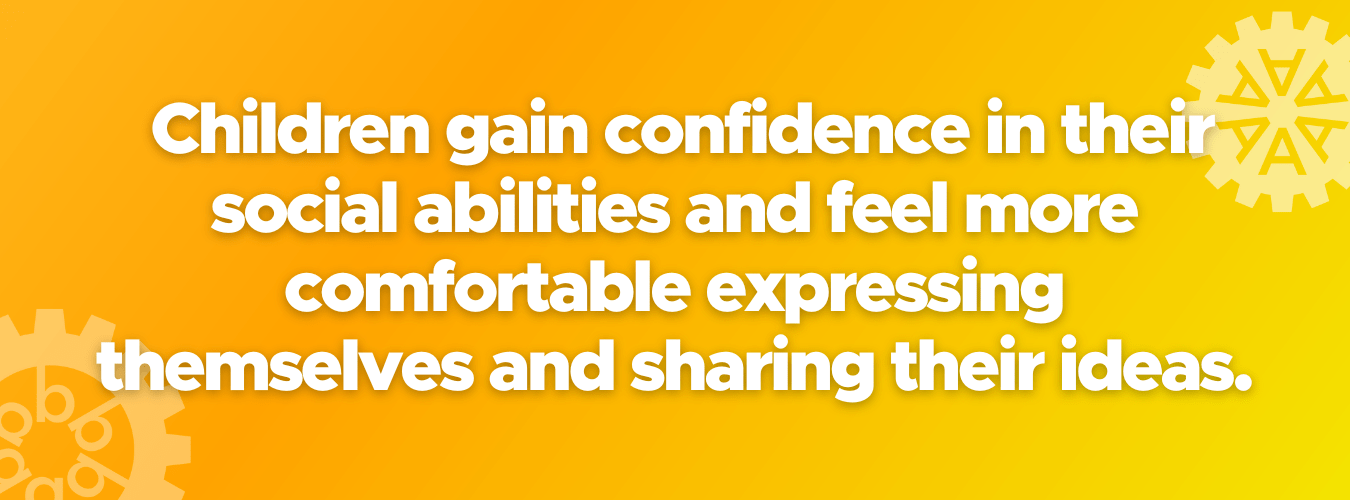
Encourage New Challenges and Exploration
As parents, our instinct is to protect our children and keep them safe. However, we have the power to nurture kids and develop their confidence by exposing them to new challenges and encouraging exploration.
Stepping out of their comfort zones and embracing new life experiences helps children develop resilience, self-assurance, and the ability to cope with difficult situations. By overcoming fears and embracing new challenges, our children learn to build confidence, acquire new skills, and broaden their horizons.
Confidence is a lifelong asset that empowers children to face challenges, pursue their dreams, and unlock their full potential. As parents and educators, we have the privilege and responsibility of nurturing confidence in our children. By implementing these strategies, we can help confident children become resilient learners and confident people who embrace growth, navigate challenges with confidence, and achieve success.
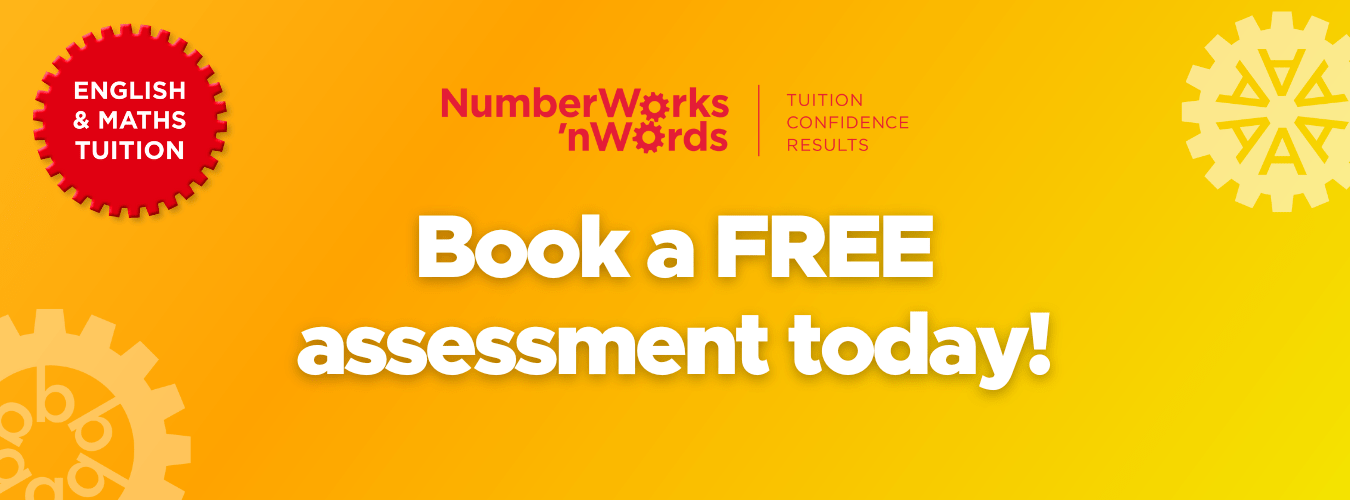
At NumberWorks'nWords, we recognise the importance of building confidence in children. Our comprehensive math and English tuition programmes are designed to help young learners develop confidence and resilience while reaching their academic goals.
If you notice your child's lack of confidence or identify gaps in their learning, our personalised and engaging tuition programmes can provide the support they need. Contact your local NumberWorks'nWords centre or book a free assessment to discover how we can all help your child or young child become a confident and resilient learner.



